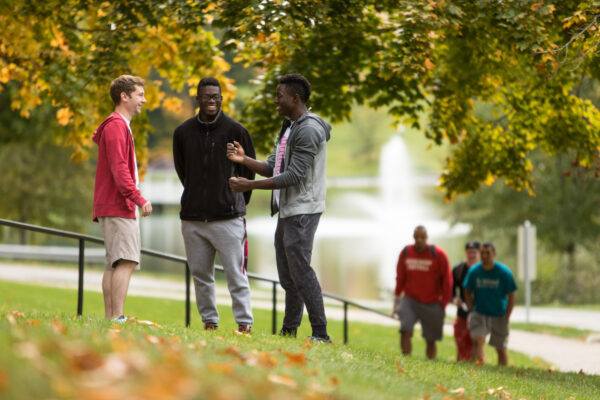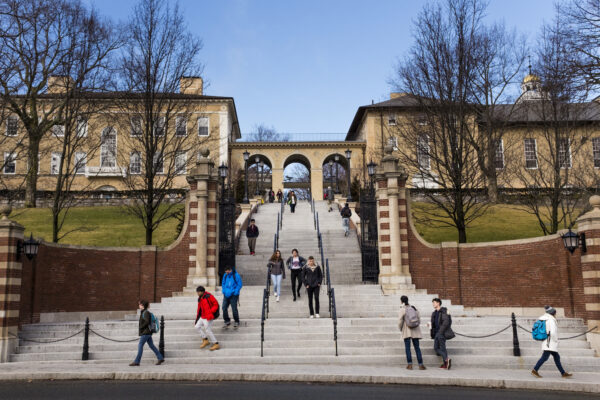By Cecilia Rios-Aguilar
The National Center for Institutional Diversity at the University of Michigan interviewed a number of academic diversity officers (ADOs) to learn more about how they view their role. Results from this study were published last fall. In this new blog series, ADOs and other senior leaders discuss the role, the challenges ADOs face, and the opportunities these positions bring to college and university campuses.
In his book Strategic Diversity Leadership: Activating Change and Transformation, Damon Williams urges higher education leaders and administrators to rely on the “science of diversity” to inform equity, diversity, and inclusion (EDI) efforts on our campuses. In other words, EDI policy and practices should be based on the wealth of existing research and scholarship that has been developed over the last four decades.
While grounding our practices as EDI leaders in the existing research is undoubtedly important, we should not assume that those who know this scholarship also know how to do the work. For example, we should not assume that faculty members who engage in research that examines inequalities through asset-based approaches (i.e., perspectives and practices that focus on utilizing people’s strengths and existing resources rather than on what they lack in order to succeed academically and in life) automatically know how to draw on their scholarly expertise to engage in EDI work. The reality is that we are asked to serve in EDI roles, assuming and hoping that we know what we are doing and how to make structural changes. But, Lo unico que sé, es que estoy “haciendo la lucha” [All I know, is that I am working hard].
I became associate dean of EDI at UCLA’s Graduate School of Education and Information Studies on July 1, 2018. And to be completely honest, on most days, becoming associate dean feels exactly as how I felt when I became a parent for the first time: nothing prepared me for the moment when I held my daughter, she started crying, and I didn’t know why or what to do. Likewise, in becoming the associate dean, no scholarly project had prepared me for having difficult conversations with some of my colleagues about what they say to students and staff in classes (and in other settings) that is racist, classist, sexist, xenophobic, ableist, transphobic, homophobic, and/or any other matter related to individual identity.
No academic conference I had attended or paper I had written prepared me for dealing with students experiencing severe mental health crises. I had not considered the difficulty of accessing workspaces, resources, and opportunities when needing to rely on elevators working properly, especially if the building only has one. And, I also came to realize that any member of our community can file a grievance against me for taking a particular course of action or because I failed to take action on an issue that affects them.
In reflecting on my (little) parenting experience and my first year as an associate dean for EDI, I feel it is important to reflect on what I have found most helpful in my journey as a mother-scholar and now as a mother-scholar-administrator.
Listening actively
At a summer training with all the equity advisors at UCLA, one of the advisors brought as her artifact to our intergroup dialogue session the Japanese kanji for the verb to listen. She explained to us the kanji means that when we listen, we must do so with our minds present and with all our senses, not just with our ears.
Most of my work as associate dean involves meetings. I meet regularly with the EDI committee, students and staff who want to address grievances, vulnerable groups of students, administrators, and other stakeholders. I spend a considerable amount of time trying to do EDI work in meetings, and I found the practice of listening with all my senses to be important to truly understand what issues are relevant to people in our community. Without taking the time to honor the multiple places/geographies/locations where people come from and identities of those with whom we work, live, and educate, we cannot build and sustain EDI work.
Addressing the illusion that “we are doing great”
The Graduate School of Education and Information Studies is the most diverse (in terms of race and ethnicity) school at UCLA, but we are still not doing great in many areas (e.g., being more inclusive of the many identities students, staff, and faculty bring to our school, unmasking our internal inequities, discussing the concrete ways in which privilege and power get in the way of doing EDI work). We need to do much better in serving our most vulnerable and neglected community members.
To do better, we have to be strategic and use evidence (i.e., data collected from our own community through climate studies, eight-year reviews, advising loads, and other efforts) while talking about our “issues” collectively. Our specific efforts have included using internal data on workload distribution to highlight inequities; discussing teaching and mentoring in our faculty meetings; and conducting town halls with staff, students, and faculty to create collaborative plans of action. If we aim to build equitable, diverse, and inclusive learning and working environments for all members of our community, we must start by looking at our own practices and habits.
We started our faculty retreat this academic year recognizing and talking about our internal inequities. We are now moving toward rethinking how we interact with each other in spaces where we come together regularly (e.g., faculty meetings) to talk about our teaching pedagogies and mentoring styles and practices. We are having difficult and productive conversations about issues that affect our own community and how we can improve. We have recognized through these conversations that we need to do much better because our community demands us to do better.
It takes a village to build and sustain EDI work
Yes, I have a husband, and family and friends, and many people who help me raise my kids. I would not be able to be a mother-scholar without the daily support and trust we have created. The same is true for EDI work. It takes all members of our community to do this work.
We are lucky to have support not only from the dean, other associate deans, and department chairs but also from the graduate student organization, the business office, and the human resource department. We have worked collaboratively to create a trusting and caring team that supports and embraces EDI work. And we have formalized the EDI committee by creating a set of bylaws that will help structure the committee’s role and give more visibility and legitimacy to its work.
Given the importance of a supportive team, it is essential to be aware that not everyone has a supportive “village.” For example, women of color in particular who are doing EDI work on my own campus (and across campuses at large) often lack spaces and places to share issues, strategies, barriers, and opportunities to build and sustain our work.
Last summer, for the first time, UCLA held a writing retreat for faculty women of color. Our junior colleagues in the education department organized this beautiful space where we all joined and talked about ourselves and our journeys, and where we came to accomplish our writing goals with the help of each other. It was the first time I felt connected at UCLA. For me, this space was inspiring, productive, and transformative.
We need more of these spaces to connect with each other. Some colleagues of mine (all of them women of color) are venturing into social media to create these types of communities to strategize, to resist, and to transform. Without connecting ourselves and supporting each other, we will not be able to make structural changes in our departments, schools, and institutions. We need to uncover and permeate shadow cultures, mainstream biases, and unwritten rules that get in the way of doing EDI work and that paralyze academia. EDI work is ongoing work; it will never end, and without access to various developmental networks, it will be quite difficult to create plans, sustain efforts, and achieve our goals.
Williams’s invitation to be strategic about diversity is one we should take seriously. We don’t just wish our own departments, schools, and institutions into a state of equity, diversity, and inclusion. Rather, we have to set objectives, have plans of action, create and formalize processes, and hold ourselves accountable to benchmarks on how much progress we have made and have yet to make.
We also need to recognize that easy fixes and one-size-fits-all approaches are not conducive to institutional transformation. We must use asset-based practices, such as establishing conviviality (a term I borrow and adapt from Luis Moll), a concept that can also be applied to our own EDI contexts. The practice of conviviality requires developing trusting relationships that will help us live together. After all, for me, EDI work and parenting start in the same place: looking into the eyes of people in my community to let them know I am here for them.
If you have any questions or comments about this blog post, please contact us.


